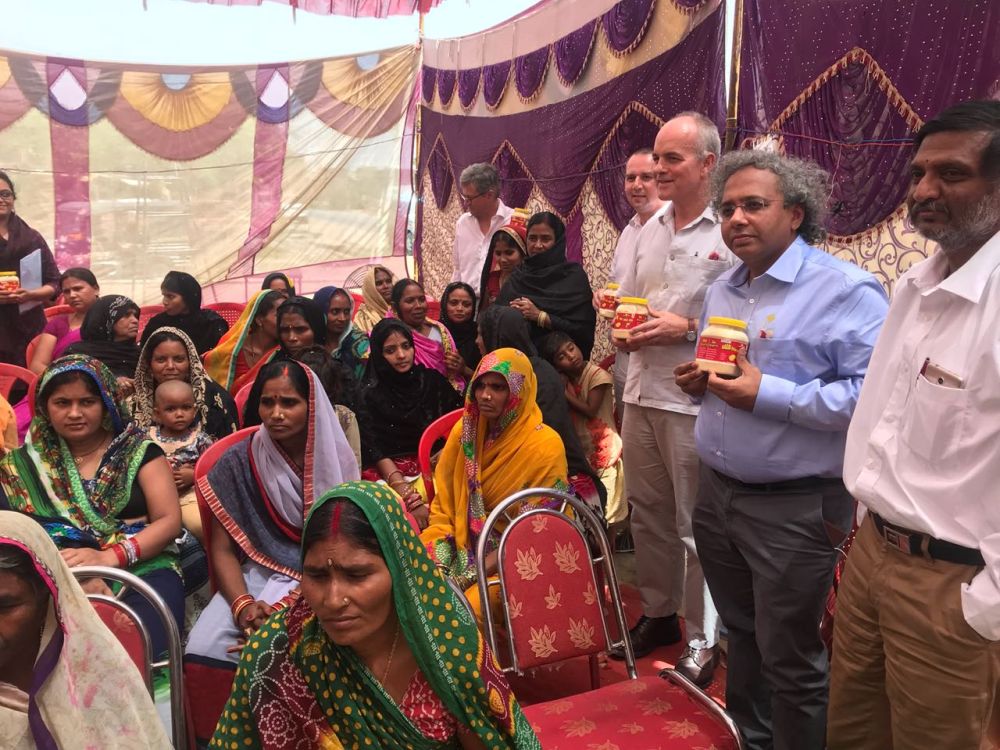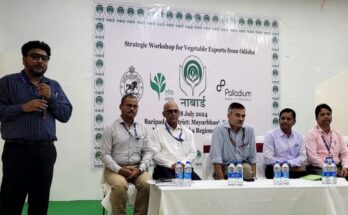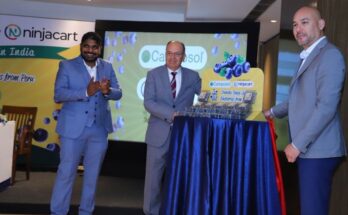Centre for Digital Financial Inclusion (CDFI) will be collaborating with Bihar Agriculture Growth and Reform Initiative (BAGRI) to implement the KANCHI (Kisan AdvaNcement through Cashless Innovations) platform in 11 districts of Bihar. The project was officially inaugurated by Gavin McGillivray, India Head, Department for International Development (DFID) – UK, today with the implementation in the Dumraon Farm Producer Company (DFPCL) FPO in Buxar, Bihar.
Government of Bihar (GoB) is implementing Bihar Agriculture Growth and Reform Initiative (BAGRI) programme with the support of DFID – UK. BAGRI intends to implement Bihar’s Agricultural Road Map for enabling sustainable and inclusive growth leading to poverty reduction in the state.
One of the key deliverables of the BAGRI programme is the formation and strengthening of 20 farmer producer organisations (FPOs). FPOs are being created with a mandate to provide institutional mechanism to small and marginal farmers of Bihar, leveraging the principals of economies of scale resulting in significant enhancement of income. These FPOs will operate a one-stop-shop for managing all agribusiness needs of farmers named, BAGRI Kisan Sewa Kendra (BKSK). FPOs will also be involved in produce aggregation and sell in open market to fetch better price for farmers.
DFID team will be using CDFI’s ‘KANCHI – Kisan AdvaNcement through Cashless Innovations’ for digitising the operations of 20 FPOs in Bihar under this project. The BAGRI programme will impact FPOs spread across 11 districts and benefit approximately 50,000 farmers in the state.
Speaking on the occasion, Krishnan Dharmarajan, Executive Director, Centre for Digital Financial Inclusion said, “KANCHI has been developed in order to enable small and marginal farmers’ access to formal credit, technology, cost-effective inputs and markets. Through technology, we can make agriculture more productive, profitable and sustainable. Our aim is to amalgamate small and marginal farmers and weave them into communities with enabling technologies. We envision an integrated digital platform that caters to end-to-end agricultural activities.”
KANCHI is a cost effective digital solution to maximise cashless transactions in agriculture and facilitate small and marginal farmers in securing credit from formal financial institutions by building their financial history. CDFI and NAF are currently piloting KANCHI platform at multiple Farmer Producer Organisations (FPO) in state of Tamil Nadu.
The digital platform aims to ensure that agricultural business transactions are routed through banking channels, thus maximising cashless transactions, to minimise cash transactions where FPOs are involved, to facilitate a constructive engagement between financial institutions and farmers, to increase volume of banking transactions and keep accounts active, and to reduce dependence of the rural farmer population on the non-institutional sources of credit.
KANCHI is currently being used by 14 FPOs in Tamil Nadu and more than 8,800 farmers have been registered on the platform. Since April 2017, using KANCHI, over Rs 3 million has been directly transferred into the bank accounts of 219 marginal farmers for selling milk at the aggregation centres in Tamil Nadu. Loans worth Rs 7.3 million to 173 farmers and their repayments are now digitised under the KANCHI pilot in Tamil Nadu.
Centre for Digital Financial Inclusion (CDFI) at the Institute for Financial Management and Research, focuses on research and innovation to open doors to the financial mainstream for the poor. To make this happen, the Centre has developed innovative solutions to improve design and drive faster roll-out of large benefit programmes. One of its innovative solutions is a digital platform that is currently being used to deliver the nation’s flagship maternity benefit programme. Amongst other projects, the Centre is piloting a digital solution for Anganwadis, and has supported mobile- based continuous literacy tools for deepening digital, financial and domain literacy.
CDFI’s work touches diverse sectors and spans banking, education, agriculture, governance, healthcare, nutrition, enterprise and self-help groups.
KANCHI: Bihar farmers to get digital payments for farm produce




